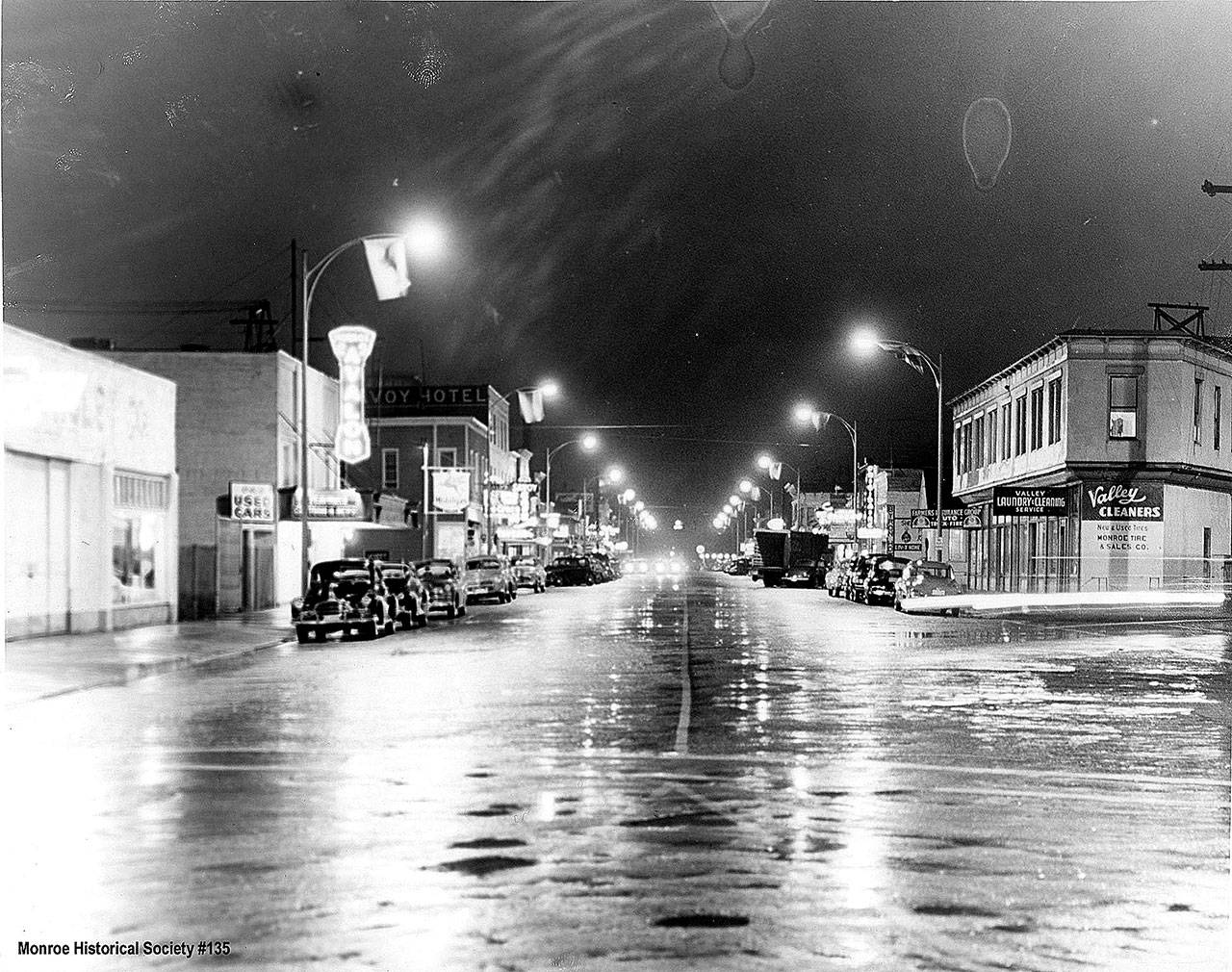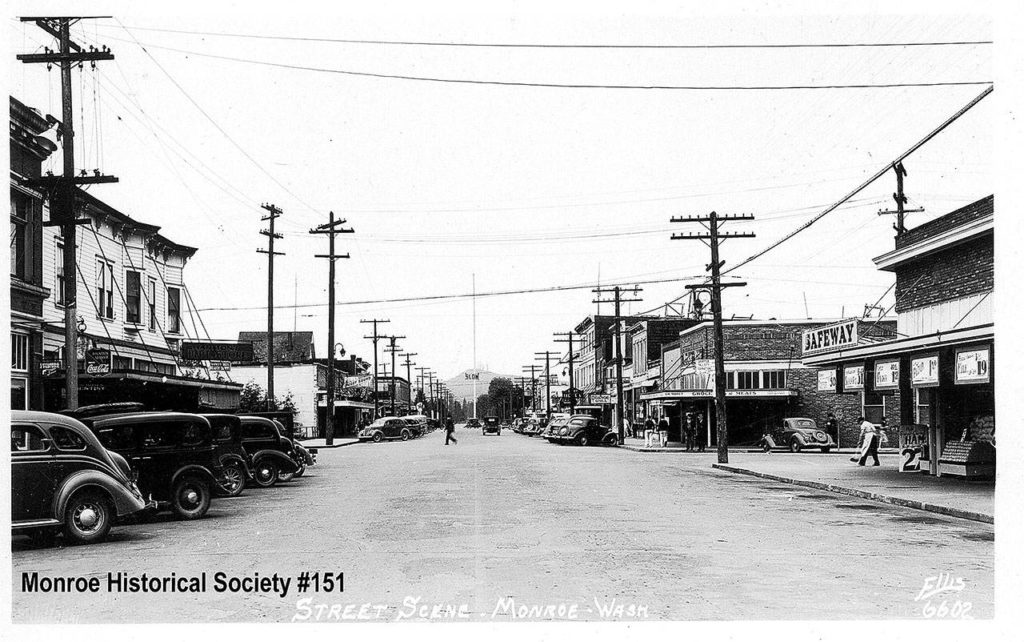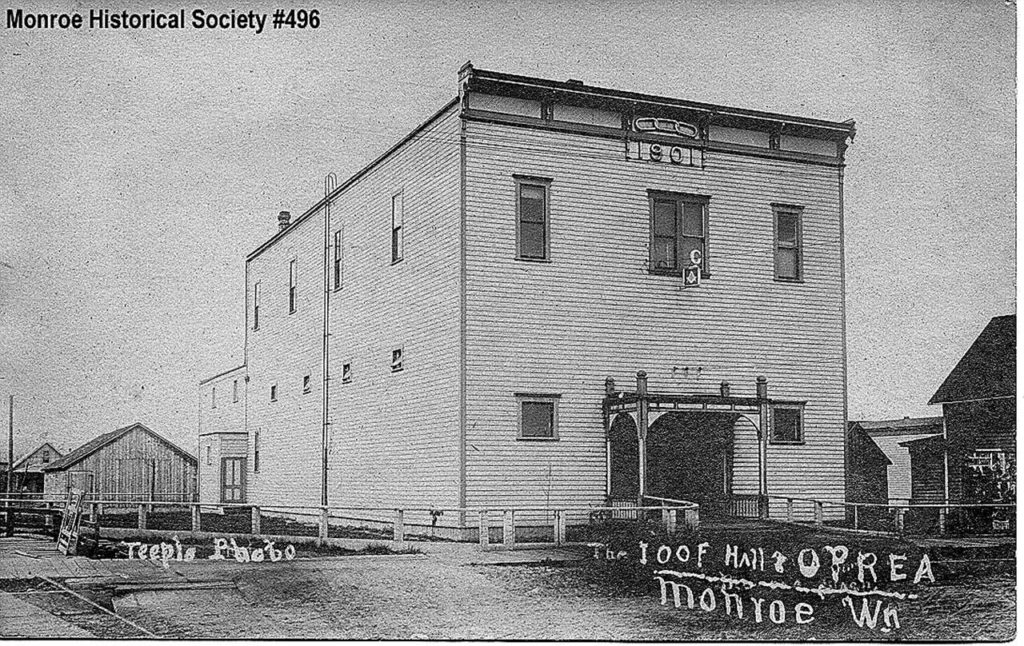As it was in most farming and logging towns in the early 1900s, life was hard for folks in Monroe.
From sunup to sundown, people hauled water, cut firewood, took care of farm animals and performed countless other tedious chores.
“It involved a lot of toil,” said Tami Kinney, a Monroe Historical Society trustee. “Life was pretty bleak for a lot of these people.”
Theaters were a break from the monotony. They were the primary source of entertainment for folks back then: silent films, magic shows, vaudeville acts.
“Just being able to escape for a few hours and forget your troubles went a long way for making life tolerable back then,” Kinney said. “It was even more important than it is now because we have so many amusements at our fingertips.”
Monroe’s rich history with theaters will be the focus of the society’s presentation, “From Opera House to Multiplex: Monroe’s Historic Theaters,” at 1 p.m. Oct. 13 at Galaxy Monroe theater.
Kinney, the lead presenter, will talk about the seven theaters that have operated in Monroe from 1893 to the present. Artifacts from one of those theaters, currently on exhibit in the Galaxy lobby, will be part of the event. They include a vintage velvet theater seat and old programs.
“It’s been a real success having that in the lobby,” Kinney said. “We just thought, ‘Gosh, let’s give them a bit more history.’”
Monroe, founded in 1864, was a commercial center for logging and farming during the early days. Businesses ranged from feed stores to hotels, the latter of which were particularly important for seasonal workers.
Traveling merchants would often put on free magic shows so they could “peddle fake medicine,” according to Dexter Taylor, author of “Early Monroe,” which covers the city’s history.
Entertainment was most likely held in Independent Order of Odd Fellows Hall, which opened in 1893. The hall burned down in 1901 in a blaze that destroyed the town’s central business area, but it was quickly rebuilt.
The lower hall had a large movable stage, which turned the room into a theater, and it could seat 200. A highlight was a 1901 production of “Uncle Tom’s Cabin,” the 1852 anti-slavery novel by Harriet Beecher Stowe. The hall later doubled as the Monroe Opera House.
New theaters sprung up over the years and featured moving pictures, singers, vaudevilles, benefits and orators. Nellie Johnson Blakeslee, the wife of one of the theater owners, played piano at theaters for many years.
The longest-lasting of the bunch was the Avalon Theater, which operated from 1929 to 1966. (It was well-known for its 14-foot-tall neon sign out front.) It was torn down in 1968 to make way for a bank parking lot, but not before an old velvet seat was salvaged from it.
“Television is what did it,” Taylor said. “People just didn’t go to the movie theaters anymore.”
Monroe went without a theater for the next 32 years, until Galaxy Monroe opened in 2000. It’s a multiplex with 12 screens.
Kinney, a past president of the Monroe Historical Society, said the theme of her presentation is how theaters bound the community together over the years.
“Everyone enjoys going to the movies,” she said. “It isn’t something so expensive that you can’t afford, even when you have your lean times. It’s something you can share in the community, ‘Hey did you see that latest movie?’ It’s kind of a unifying experience.”
Evan Thompson: 425-339-3427, ethompson@heraldnet.com. Twitter: @ByEvanThompson.
If you go
Monroe Historical Society’s program, “From Opera House to Multiplex: Monroe’s Historic Theaters,” is set for 1 p.m. Oct. 13 at Galaxy Theater, 1 Galaxy Way, Monroe. The event is free. More at www.monroehistoricalsociety.org.
Talk to us
> Give us your news tips.
> Send us a letter to the editor.
> More Herald contact information.



























